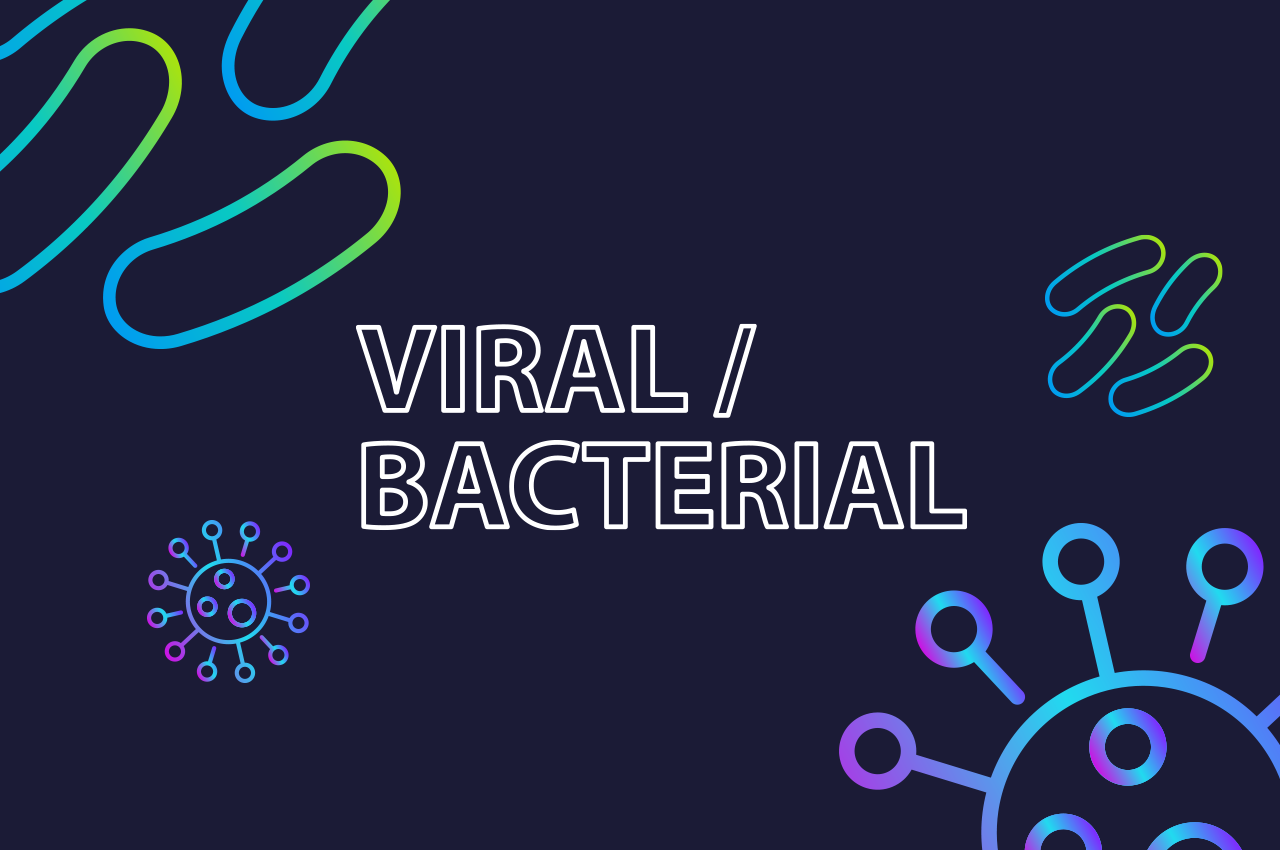It’s important to understand the difference between a bacterial and viral infection. Even though both infections can cause similar symptoms, they are treated very differently.
Bacteria create bacterial infections and viruses create viral infections. Many bacterial and viral infections are contagious, which means they can spread from person to person. They can result in mild, moderate, or severe diseases.
Bacterial infections
Bacteria are single-celled microorganisms that grow well in different types of environments. Not all bacteria are bad, and not all cause infections. Good bacteria live in your intestines and help to digest food. Disease-causing bacteria live outside of the body.
Infections caused by bacteria include:
- Strep throat
- Whooping cough
- Some ear infections
- Urinary tract infections (UTI)
- Food poisoning
- Skin infections
Viral infections
Viruses are small organisms that need living hosts like people, animals or plants to successfully multiply, or else they won’t survive. When a virus enters your body, it invades some of your cells and takes over the cell machinery. Viral infections can be minor, like the common cold, or could involve your nervous system, making you seriously ill.
Infections caused by a virus include:
- Influenza
- Common cold
- Viral gastroenteritis (stomach flu)
- Chickenpox
- Measles
- Viral meningitis (an infection of the membranes (linings) that cover the brain and spinal)
- HIV (Human immunodeficiency virus)
Bacterial or viral?
Most times it’s difficult to figure out if it’s a bacterium or a virus causing your symptoms. Your doctor may be able to diagnose your condition based on your medical history and your symptoms.
For your doctor to diagnose the cause of your condition, a sample of blood, mucus, urine, stool or skin may be taken. This will help determine whether an antibiotic may be helpful in treating your condition. Antibiotics are only effective in treating bacterial infections, they are powerless against viruses.
Treatment
Antibiotics are usually the prescribed treatment for bacterial infections and there are many types available. They all work to keep bacteria from growing and dividing again.
Treatment for viral infections typically focuses on relief of symptoms while your body works to clear the infection on its own. This can include things like:
- Getting rest
- Drinking enough fluids to prevent dehydration
- Using over-the-counter pain medications to relieve pain and fever and decongestants to help with a runny or stuffy nose
- Throat lozenges to help ease a sore throat
In some cases, your doctor may give you antiviral drugs, which is medication for treating viral infections rather than bacterial ones. These act by killing or preventing the growth of viruses. Not all virus infections have antiviral drugs that can treat them, and most of the virus infections just need to be cleared by your body’s immune system.
Prevent infections
Infections can be caused by either bacteria or viruses and spread in many of the same ways. Keep yourself from getting sick and spreading both bacterial and viral infections by:
- Always washing your hands.
- Getting vaccinated.
- Not going out if you’re sick.
- Practising safe sex.
- Making sure that food is cooked thoroughly and all raw fruits or vegetables are washed before eating.
- Protecting yourself against bug bites and using insect repellent if you’ll be in contact with insects like mosquitoes and ticks.
References:
- https://www.healthymepa.com/2017/02/21/do-you-need-antibiotics/
- https://www.healthdirect.gov.au/bacterial-vs-viral-infection
- https://www.healthline.com/health/bacterial-vs-viral-infections#treating-viral-infections
- https://www.webmd.com/a-to-z-guides/bacterial-and-viral-infections#1
- https://www.premierhealth.com/Women-Wisdom-Wellness/Content/Bacteria-or-Virus–What-s-Making-You-Sick-/?HealthTopicTaxonomyID=21826

